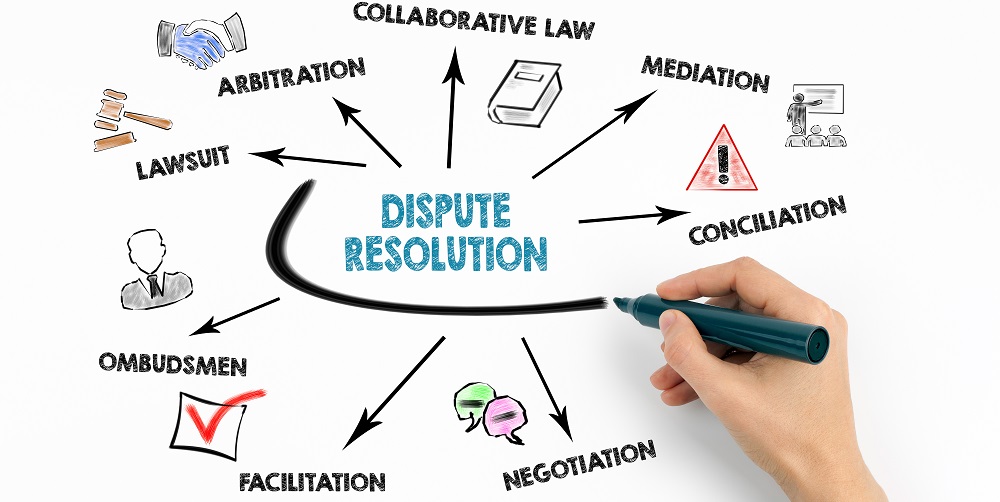Know the Types of Dispute Resolution in Canada
There are different types of dispute resolution services that can serve as an alternative to court proceedings. Tribunals are an efficient and effective alternative to court proceedings. However, the process may take more time and energy than normal.
While the length of a hearing depends on the tribunal, it can still take several months to complete. This is where the different types of dispute resolution prove useful.
With tribunals, most of the time, their decision isn’t guaranteed to go your way. Many factors go into a tribunal’s decision over which you have minimal control. For example, you can’t control how the “other party” will present his or her case. Likewise, you can’t control how the tribunal will view the other party’s side.
If you have a significant relationship with the second party in the dispute, your relationship may suffer for it. The other person may wonder why you didn’t come to them first to try to work things out. Therefore, before you head to a tribunal hearing, it is a good idea to consider other ways to settle your dispute.
In this article, we will go deeper into the different types and advantages of dispute resolution options available in Canada. Iron out issues smoothly!
What are the Types of Dispute Resolution in Canada?
Different methods of dispute resolution in Canada include negotiation, mediation, and arbitration. Typically, your choice of an alternative dispute resolution will depend on what stage you are and the options available.

Negotiation
Sometimes if disputes are not that serious, it is helpful for you and the other party to gather for a respectful conversation.
This healthy communication can help you sort out your differences and come up with the best possible solution. Negotiation is the easiest, quickest, and probably the most satisfying way to settle a dispute.
Generally, you determine the extent to which you are involved in the negotiations. However, it would be best if you communicate through your lawyer. You can also supply technical information to support your position. In addition, you decide if an offer made by the other party is an acceptable settlement of your dispute.
During the dispute, your lawyer will advise you on legal issues. This includes the strengths and weaknesses of your position. The lawyer may also negotiate on behalf of you, offering a settlement for you to review.
Positional-based Negotiation
Positional-based is the traditional method of negotiations. The focus on this negation is on power. Usually, it favours the more aggressive party in the disputes. Besides, it results in a solution that may not serve each party’s interests in the long run.
During negotiations, both of you, or your lawyers will try to find a way to settle the dispute. You and the second party will present your cases in positional terms based on fault, power and rights. Negotiations only end if you and the second party cannot agree to a settlement.

Mediation
During this type of dispute resolution, there is a neutral third party who assists both parties during negotiations. Mediators help both parties clarify and clear issues that arise during a dispute. They also define the terms of an acceptable settlement.
During mediation, you may communicate directly with the mediator. Whereas the other party can only communicate with you through a lawyer.
During mediation, your dispute resolution lawyer will advise you about the legal issues involved in the dispute. They can take an active part in negotiations and review any agreement reached with the other party.
Arbitration
Arbitration provides more control as compared to a tribunal hearing. However, compared to other options, this type of dispute resolution offers much less control over proceedings. In arbitration, all the parties who have been unable to negotiate must agree to let a neutral person provide a solution.
This independent and impartial individual is called an arbitrator. They hear evidence from witnesses for the parties, who are represented by an advocate or a spokesperson. After listening to the arguments, the arbitrator will produce a permanent decision.
You can assist your lawyer in preparing for the arbitration by giving technical and background information. On the other hand, a lawyer prepares for arbitration the same way they prepare for trials. As is the case in other dispute resolution processes, the lawyer should be alert to settlement possibilities. They should also discuss settlement possibilities with you.

What are the Advantages of Dispute Resolution?
There are several benefits of dispute resolution to both parties involved in the disputes. These include:
Privacy
Unlike trial hearings, settlements done with dispute resolution can be kept confidential and are usually private. However, the Access to Information Act and the Privacy Act may still bring government negotiations and settlements under public scrutiny.
Greater Satisfaction and Results
Mostly, parties tend to feel more satisfied with the resolution and result since they have more control.
Speed
Issues are quickly resolved if both parties choose to settle it through the different types of dispute resolution.
Flexibility
Many dispute resolution proceedings allow the parties to define the procedures and the parameters of issues.
Cost Savings
Many dispute resolution options offer the potential to save costs on legal bills.
Choice
Both parties can choose the people who will assist them in their negotiations. They can also select a third party to provide expert evaluations or make settlement advice.
Improved Relations
In the dispute resolution mechanism, there is a better chance of a productive on-going relationship between all parties. It may happen if both parties feel that the resolution of a dispute reflects their specific interests.

Final Thoughts
Everyone gets into disputes. Sometimes it is inevitable as people don’t always agree on one decision. Be it big or small disputes; there’s no doubt that conflict is indeed part of our lives.
Before deciding to go to trial proceedings, it is good to look for better and easier options. To settle an ongoing issue, consider choosing from the different types of dispute resolution. These dispute resolution methods can also help you settle your conflicts in a healthy and satisfying way.
If you still have questions about the different types and advantages of dispute resolution in Canada, contact Lichtblau Law. You may call us at 416-633-2465 for appointment reservations. We offer a wide range of dispute resolution solutions for residents in Canada.
Latest posts by Lichtblau Law Office (see all)
- Know the Types of Dispute Resolution in Canada - August 10, 2020
- Exploring Dispute Resolution in Canada - August 10, 2020
- Importance of Estate Planning for Married Couples - July 9, 2020

